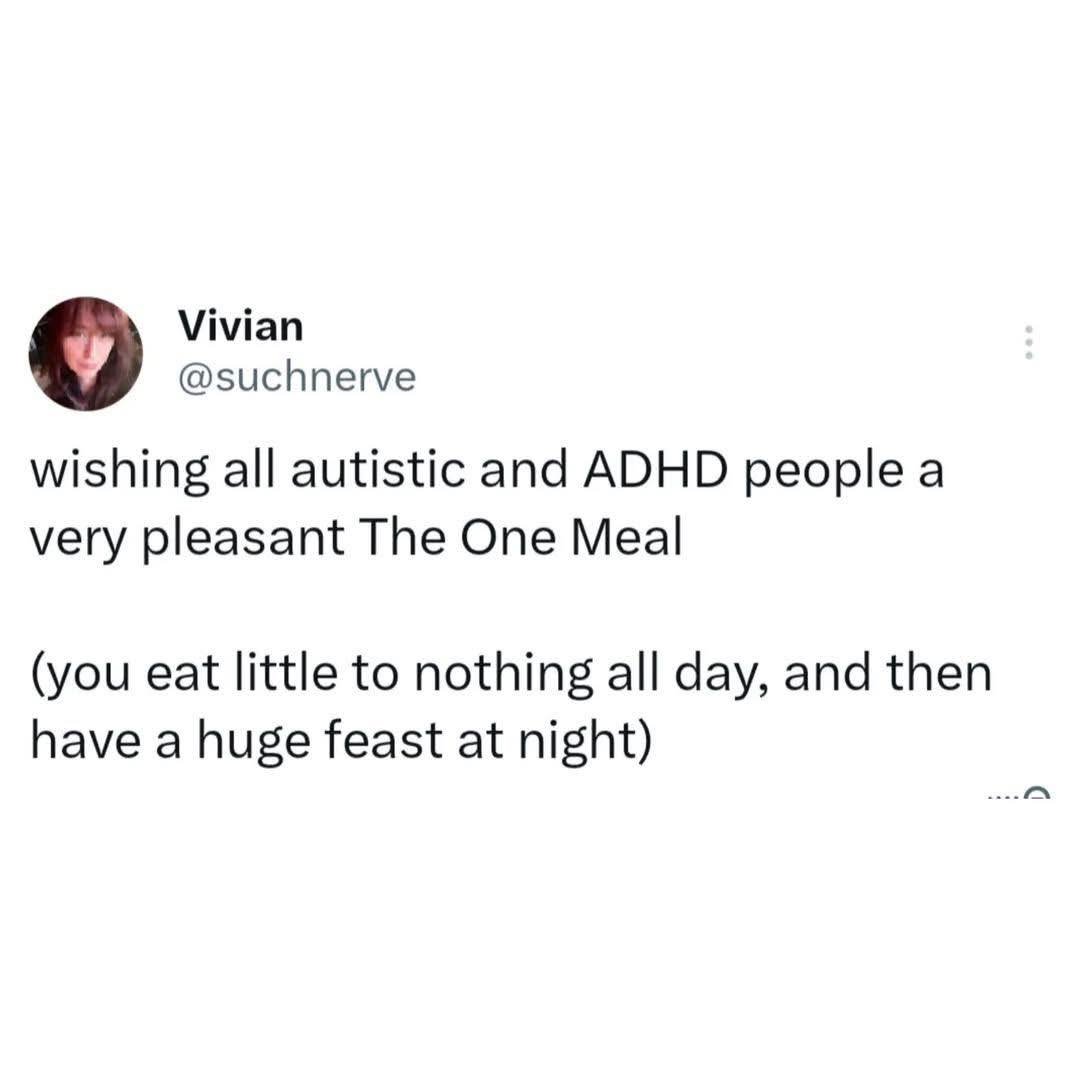this post was submitted on 17 Jan 2025
383 points (98.7% liked)
ADHD memes
8641 readers
1184 users here now
ADHD Memes
The lighter side of ADHD
Rules
Other ND communities
- [email protected] - Generic discussion
- [email protected]
- [email protected]
- !autisticandadhd
- [email protected]
founded 2 years ago
MODERATORS
you are viewing a single comment's thread
view the rest of the comments
view the rest of the comments

https://pmc.ncbi.nlm.nih.gov/articles/PMC9010393/
Basically, your metabolism and caloric needs are highest in the middle of the day, eating heavy meals in the evening means a lot of that food is converted into body fats and processed while you sleep which impairs your rest. Also, instead of being available as easily accessed calories when you're active the body needs to convert that energy from fats which generally causes more sluggishness and lower activity during the day. It's a good idea to eat before (but not right before) you're active.
That study is more focused on weight gain and not really about the effect on sleep. Sleep is mentioned, but in reference as a co-contributer.
I've done OMAD (eat at night) for close to 15 years and have always been on the lower end of my BMI ratio and other than walking between buildings at work, no real exercise. To gain any weight, I would have to eat 4,500-5,000kcal/day. My sleep has also always been the same throughout my life regardless of eating style. (it may have even improved with my eating style)